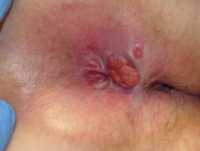MedicalResearch.com Interview with:
Lillian Siu, MD, FRCPC
Princess Margaret Cancer Centre
University Health Network
Toronto
Medical Research: What is the background for this study? What are the main findings?
Dr. Siu: Our study is a collaboration between researchers at the Princess Margaret Cancer Centre and the Canadian Center for Applied Research in Cancer Control. The study involves a statistical model being applied to a hypothetical population of 192,940 Canadian boys who were 12 years old in 2012, to determine the cost effectiveness of HPV vaccination for the prevention of oropharyngeal cancer. On the basis of this model, HPV vaccination for boys aged 12 years appears to be a cost-effective strategy for the prevention of oropharyngeal cancer in Canada. There are limitations to our study as it is based on statistical modelling with many assumptions. For instance, we could not easily address the impact of herd immunity which refers to the indirect protective effect offered by HPV vaccination in women.
Based on our statistical model, despite its limitations, the vaccine can potentially save $8 to $28 million CAD for a theoretical group of 192,940 Canadian 12-year old boys in 2012 over their lifetime. As stated, this is based on a theoretical model and not a randomized study, the results are relevant especially that
HPV-related oropharyngeal cancer is increasing in incidence and HPV is surpassing smoking as a risk factor for this cancer in many developed countries.
Currently, the National Advisory Committee on Immunization (NACI) of the Public Health Agency of Canada recommends HPV vaccination of females 9 through 26 years of age to prevent cervical, vulvar, vaginal and anal cancers, and for anogenital warts; and of males 9 through 26 years of age to prevent anal canal cancers and their precursors, and for anogenital warts. However, funding is also provided for HPV vaccination in young females and not in young males.
(more…)



